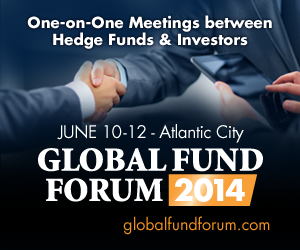In September I flew out to San Francisco to participate on a panel at a Pillsbury / Jefferies event to discuss creative capital raising in this difficult environment. I would like to share highlights from three investors who presented.
Hall Capital (Family Office): Eric Alt, Managing Director at Hall Capital said that they are looking for managers that are great investors. They like to discuss the portfolio and how trades ideas are generated. He said that Hall invests slowly, adding to its position as they get to know the manager and a relationship is built. They try to understand how a manager is calibrated versus the amount of risk they take. They are migrating away from strategies that need a lot of leverage to perform. He added that having quality service providers gives them confidence when investing with a fund. Infrastructure is important and is also a function of the strategy. For example, they do not expect smaller funds to have a separate COO and CFO. They spend a lot of time trying to understand how a company is run. Lockup should also match the strategy. They are fine with a longer lock up if the strategy calls for it. They will consider a verifiable track record from a previous firm, but not a track record from trading a personal account or back testing. He stated that they will meet with upwards of 400 managers a year. Their evaluation process takes a minimum of 6 months. They do not have an emerging manager program.
Cogo Wolf Asset Management (FOF): Giles Conway-Gordon, Managing Partner and Co-CIO mentioned that they are migrating away from emerging markets and that they avoid distress, quant and black box strategies because it is difficult for them to evaluate risk. Cogo needs good transparency in terms of risk exposure and the nature of the risk taken by the manager. They will consider a verifiable track record from a previous firm, but not a track record from trading a personal account or back testing.
Fintan Partners: Adam McNicol, Partner at Fintan Partners mentioned that they like to focus on niche strategies. Their process is one of getting to know a manager, building a relationship and trying to understand the risk they are taking before investing. The investment process depends on the strategy, the previous relationship with the manager and accessibility to information from the manager. Adam made a point of stating that they prefer hedge funds that are Registered Investment Advisors. They feel that a fund that goes through the registration process shows a commitment to the business as well as a willingness to abide by certain rules and oversight.
All investors agreed that a fund should never stop trying to build a relationship with the investor. That the best way to gain trust during these difficult times is not to run away, but to face things head on. The more information you can provide to the investor now, when markets are hard to evaluate, the more you will prove your value, the relationship will grow and eventually you will have a shot of getting an allocation.




Leave a Reply